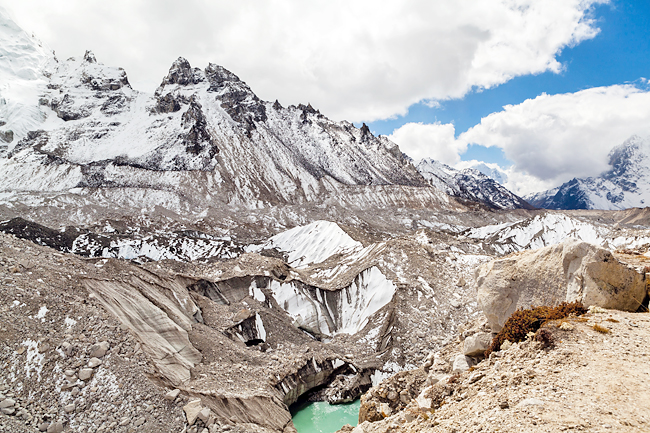PARIS (AFP) – Right-wing ideologues funded by fossil fuels, fame-seeking narcissists and doubt mongers monetising their content are pushing climate disinformation that undermines the fight against global warming, researchers say.
Experts interviewed by AFP outlined six key things that motivate people to deny climate change or seek to delay action.
Studies have documented flows of cash from the fossil fuel industry to conservative United States (US) think tanks, signalled by researchers as publishers of misleading climate claims.
Greenpeace on the site exxonsecrets.org published documents from oil giant ExxonMobil revealing donations it made in the 1990s and 2000s to three such bodies: the Heartland Institute, the Competitive Enterprise Institute and the Cato Institute. Exxon has repeatedly denied working against climate science.
An analysis of tax documents and donor records by sociologist Robert Brulle of Brown University found that 91 climate-sceptic think tanks and lobby groups received income of USD900 million in 2003-2010, largely from conservative foundations.
Since the mid-2000s, the funding has largely been channelled through philanthropic groups that conceal their donations.

“Fossil fuel companies have a long history of funding climate misinformation promulgated by conservative think tanks,” Brulle told AFP.
“This misinformation has misled many Americans regarding the risks associated with climate change and has hindered actions to mitigate carbon emissions.”
Elsewhere there are individuals “who benefit from the outrage economy online and are exploiting the current business model of social media, which allows them to monetise climate denial and climate disinformation”, said head of civic action at the Institute for Strategic Dialogue (ISD) Jennie King.
“There is a large element of grift taking place in the online space. By cultivating a brand as these contrarian, intellectual Dark Web pundits, they gain increasing prominence on social media platforms,” she said.
“That drives traffic to their websites and increases the likelihood of them developing brand relationships, sponsorship and paid talking appearances.”
For psychologists, climate disinformation is driven by free-market ideals that make people reject climate reforms.
“The number one driver of whether people accept climate science or reject it is their personal ideology,” said psychology professor at Bristol University Stephan Lewandowsky, who researches attitudes to climate change.
“People who are committed to unregulated free markets find it impossible to accept the science because the implications of the science are that we have to have regulations or a price on carbon,” he told AFP.
Some of the most widely shared social media posts come from politicians – such as US ex-president Donald Trump’s repeated claims on Twitter that snowfall was evidence against global warming.
“People who vote conservative are more likely to be climate deniers,” said a researcher at Monash University in Melbourne and founder of the climate explainer site Skeptical Science John Cook.
“Not liking the solutions to climate change, they reject that there’s a problem in the first place.”
A November 2022 study in Nature by researchers at City, University of London revealed a rise in ideological polarisation around climate change during the COP26 climate summit in 2021, “driven by growing right-wing activity”.
A 2022 article co-authored by Lewandowsky and Matthew Hornsey of the University of Queensland pointed to other psychological aspects of climate claims, such as “motivated reasoning” – people deciding what they believe and then seeking evidence that supports their view – and “solution aversion” against reforms that imply painful sacrifice.
“On top of that, people are fearful of climate change,” said Lewandowsky.
“Jumping into denial in the context of fear is not uncommon. The pandemic is another prime example.”
Some climate contrarians have millions of followers on social media.
“I think that malignant narcissism probably is a big driver of the influencers,” said Cook.
“These kind of mini-celebrities – what makes them popular, famous, gets followers, gets blog readers, is their denial of the science.”





